'I just want to be me:' Male? Female? Neither? Or both? Shedding light on non-binary people
MILWAUKEE -- It is a topic that may make you uncomfortable. It may be difficult for some to understand. Gender identity is not a simple issue -- and more and more agencies and health care clinics are realizing that by responding with programs and education.
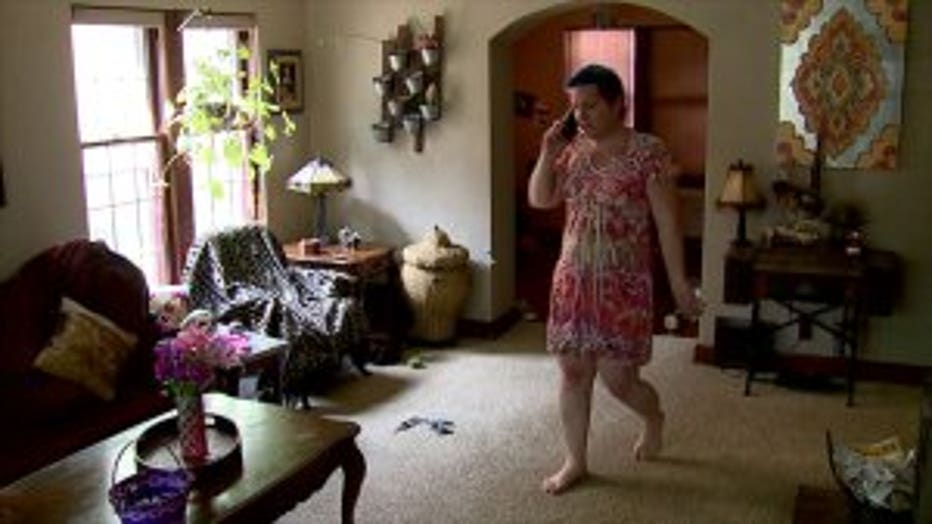
Inside a Milwaukee home, Edie Pasek, who identifies as non-binary, flips through children's books about non-traditional gender roles. It's a topic close to their heart.
"I just want to be me," Pasek said.
Pasek's driver's license says female -- and prefers the pronoun "they" when referring to their gender.
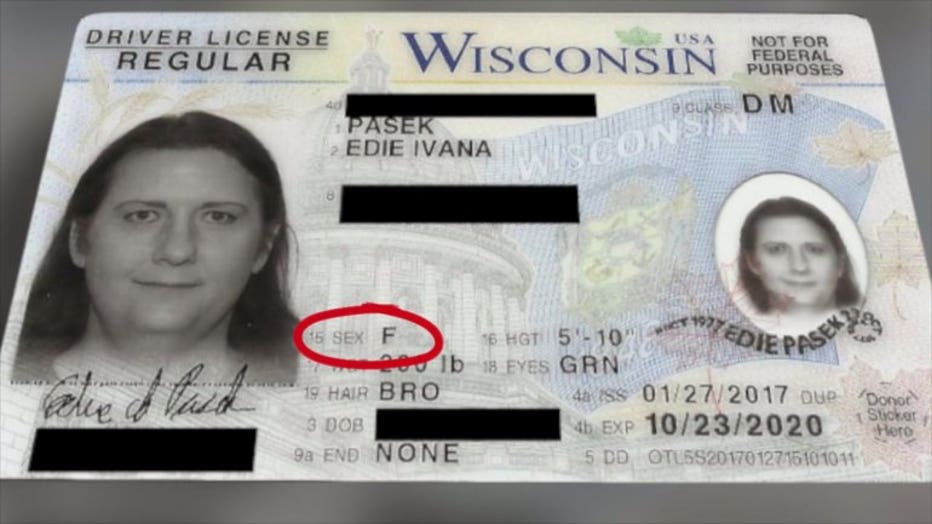
"They, look at them over there. There they go. We do it all the time. We just tend to constrict our language to using descriptors that often were used to segregate people," Pasek said.
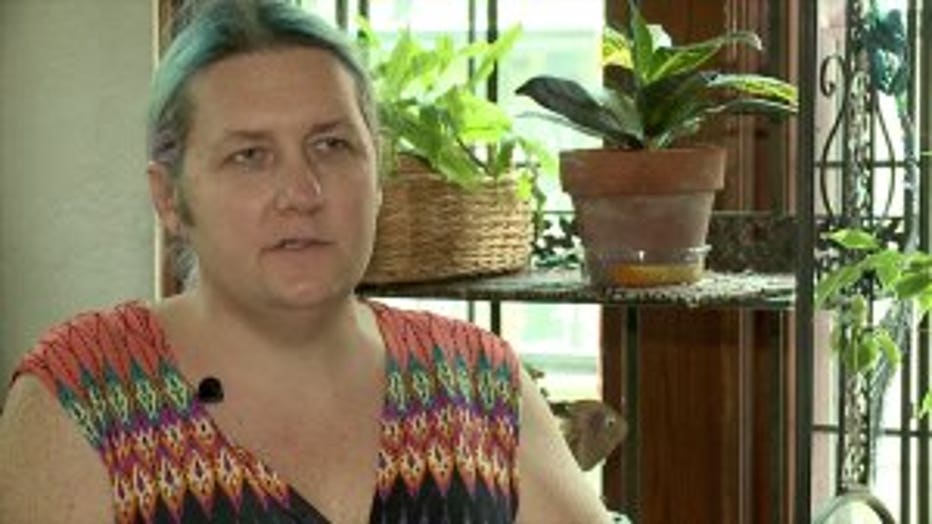
Edie Pasek
Edie Pasek considers them non-binary -- neither male nor female -- some days perhaps both.
"I don't feel like I should subscribe to a specific gender and the roles that tend to come with it. it's really just a social construct we made up," Pasek said.
Those who identify as non-binary do not fit into one specific gender category
Born as Ed, a male, growing up in West Bend, Ed was active in sports, Boy Scouts, but also loved to bake and sing in the choir.
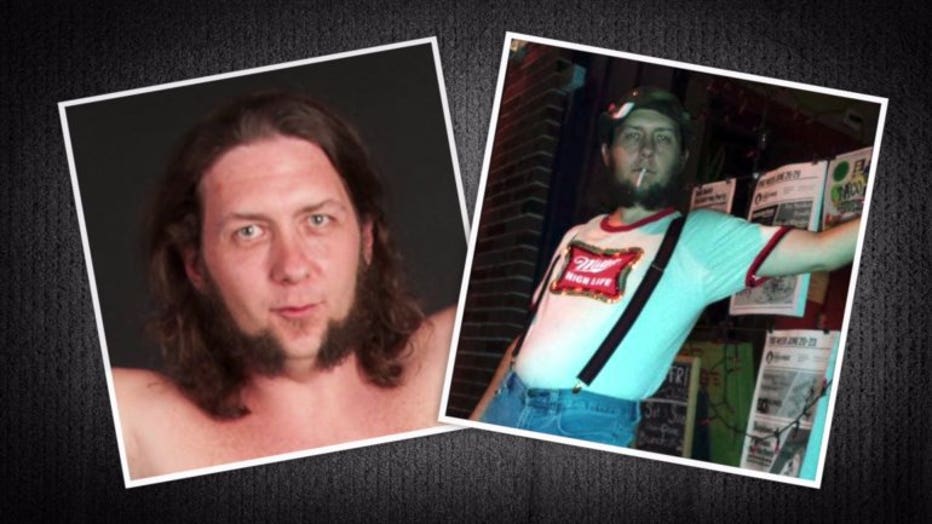
"I never felt completely comfortable in my skin. Even when I was younger, I used to do a lot of acting and theater because you could dress up and it was ok," Pasek said.
Edie recently transitioned to being non-binary.
"I feel really good about my body, my appearance, my image, how I present myself and how I go about society now," Pasek said.
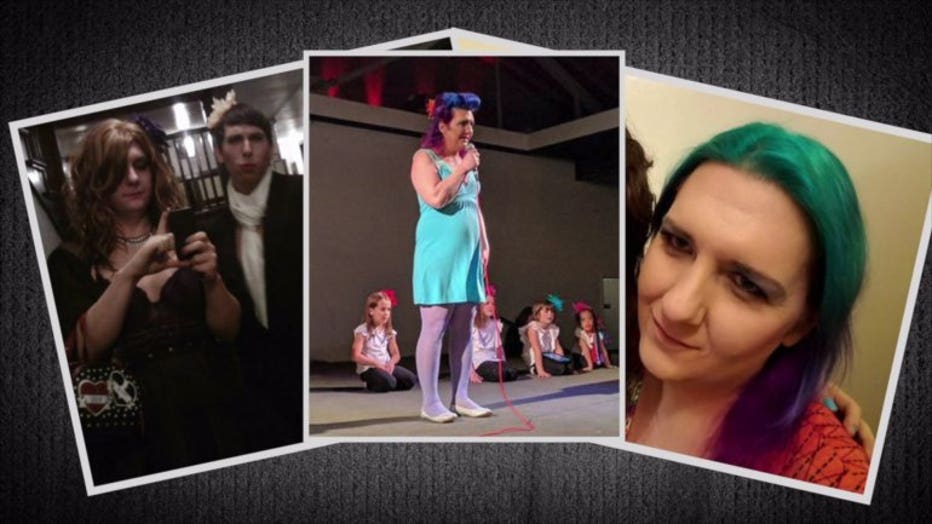
If you are having a difficult time wrapping your head around the non-binary status, you are not alone.
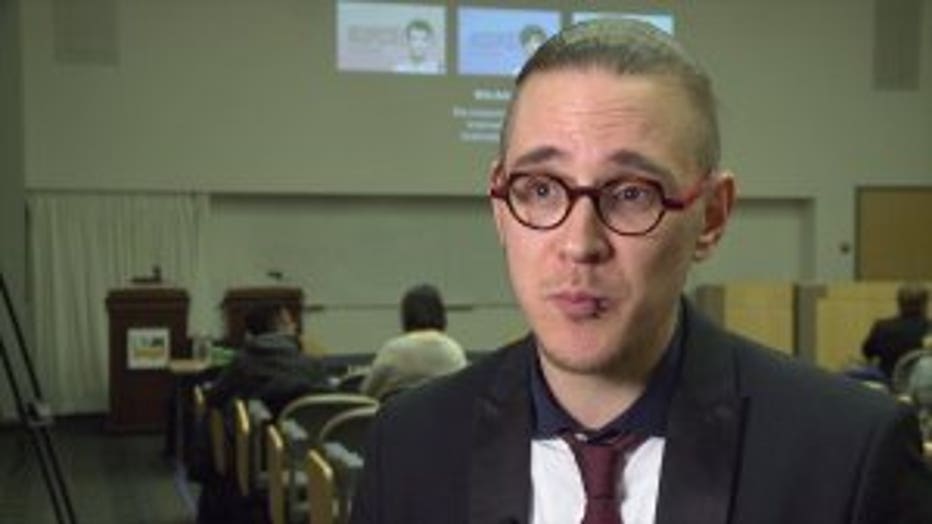
Kris Knisely
"I'm here today to give a workshop on inclusive practices for teaching non-binary students of second languages," said Kris Knisely, a professor from the University of South Dakota.
The University of Wisconsin-Milwaukee recently invited Knisely to educate staff about non-binary students.
"This can be a person who identifies as somewhere between female and male, simultaneously male and female, completely outside of this binary construct. It's anything that encompasses not one of these two rigid categories," Knisely said.
Professor Knisely said as he speaks to other educators, they have been positive -- wanting to make classrooms inclusive and comfortable for all students.
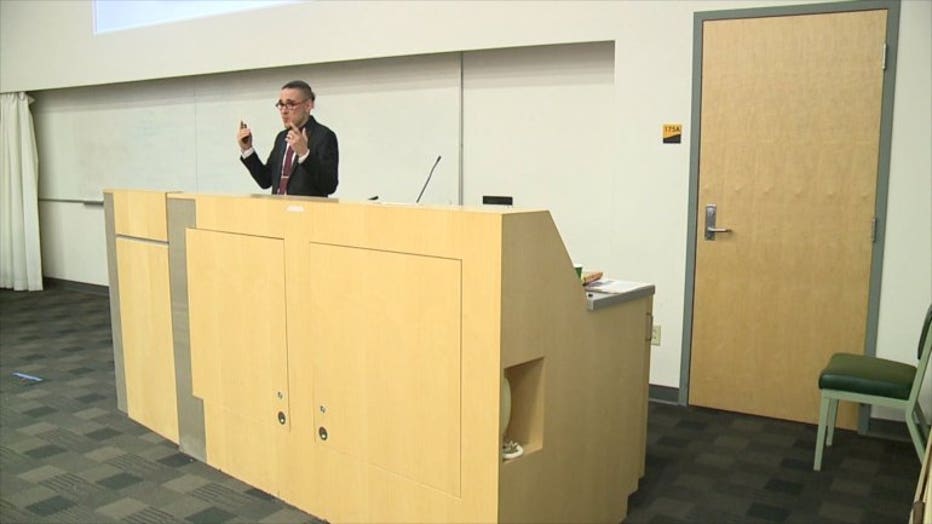
"I think people are becoming more and more comfortable using the word 'they' in the singular and rightfully so. I think it's time. I think we can recognize the fact it's a very small move to refer to someone as 'they' if that's what makes them feel respected and included," Knisely said.
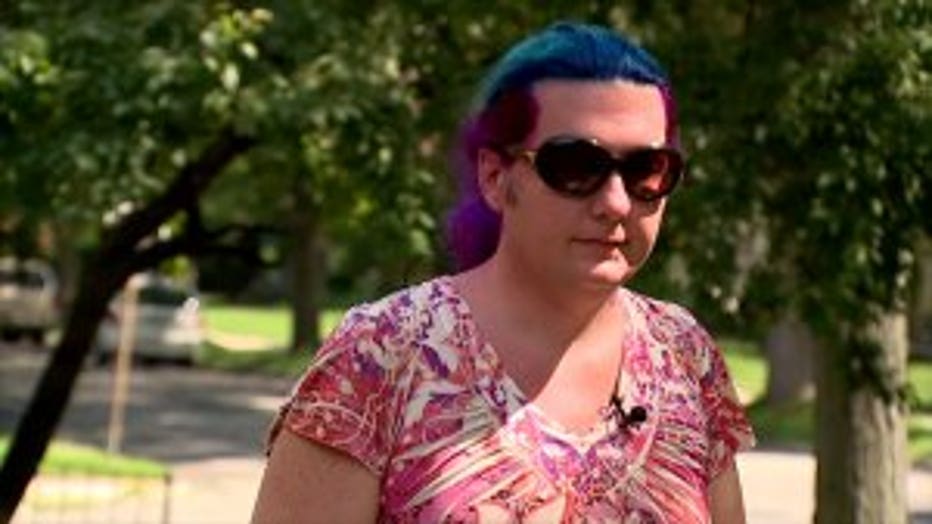
For Pasek, the path to acceptance started at home. Pasek has been married for nine years and has a 5-year-old daughter. After first, they worried about losing their wife and child. That did not happen.
"We've been so much happier now that we've gotten rid of the gender oppression that controls so much of your life," Pasek said.
It is that happiness and including Pasek would like to see in Milwaukee and beyond.
"The one thing I really wish people would take away from this interview is that we're just people trying to be human beings," Pasek said.
It is a simple wish from a person just trying to be themself.
Non-binary people are working with Froedtert Hospital -- and Froedtert plans to put on a clinic on the top on Monday, July 16 to raise awareness with staff and others.

